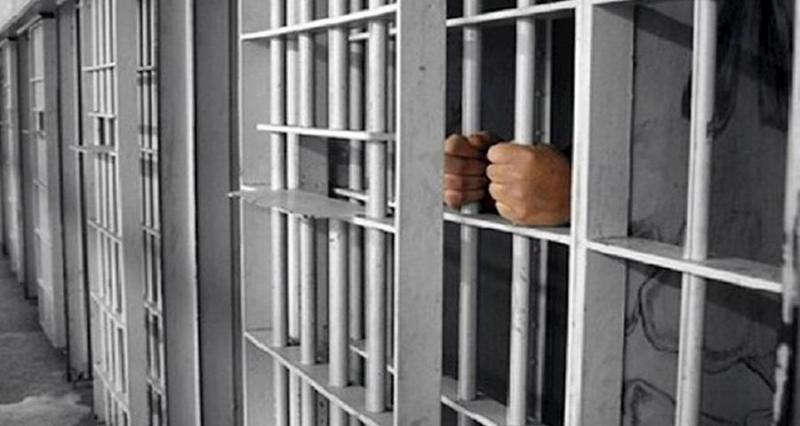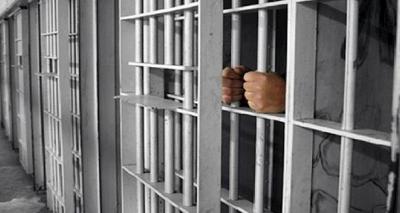The economic crisis in Lebanon has hit those inside prisons harder than those outside. Bodies are left alone and packed within concrete walls and iron doors, searching for hope at the end of the tunnel, but it seems that some have adapted to the darkness. Many wonder why there has been no uprising or rebellion among the thousands of detainees suffering difficult conditions behind bars. These conditions are enough to make prisoners "burn everything," according to one of them. However, what is happening is the opposite… so far. Have the suffocating conditions in prisons become normal? Have the prisoners adapted to the current situation? “There’s nothing to be hopeful about,” says Imad, a resident of Roumieh Prison, adding: “We’ve succumbed and surrendered to reality. We await a benevolent person who helps us from outside, whether through organizations or individual initiatives, or if someone in our room desires to share with us and support us.”
The challenges and problems in prisons are exacerbating with the worsening economic and living crisis, and the rate of overcrowding is increasing due to ongoing judicial strikes, a high level of pretrial detention, and a lack of alternative measures. Overcrowding undermines prison management’s ability to meet the basic needs of prisoners for food, water, hygiene, and safety. The quality and quantity of food provided by prison management have decreased, and inflation has eroded prisoners' financial resources. Additionally, prisons fail to provide healthcare services to inmates, with a severe shortage of chronic medications and medical equipment.
Imad notes that a previous insurrection resulted in injuries but did not achieve any demands. Consequently, it's not an experience that prisoners look forward to reliving. “There’s no medicine available, and healthcare costs money; any problem or uprising will lead to injuries, and afterward, we remain abandoned with our wounds and broken bones.” He adds: “We live each day as it comes. Whatever happens, happens. Here, one has two choices – either to try to escape if possible, or to turn to God and pray, or to use drugs.”
With rising transportation costs, family visits have become less frequent, resulting in decreased financial and food assistance for prisoners, in addition to emotional deprivation, which increases the suffering of prisoners and their families. “There’s no one but God,” says the mother of a prisoner who was transferred from Qubbeh Prison to Roumieh Prison. She adds: “I live in Tripoli and couldn’t visit him in Qubbeh, let alone in Roumieh.” Communication with him depends on whether his fellow inmates are able to assist him. “If someone in his room sympathizes with him, they let him speak for a minute or two, and when he talks to me, it feels like I’m speaking to a corpse whose mouth moves and utters words without any understanding of what it’s saying.” This situation may be similar to that of many mothers and family members of prisoners in various Lebanese prisons.
### Some Organizations Alleviate the Suffering
With prisons unable to meet the basic needs of prisoners for food, clean water, personal hygiene products, and medications, humanitarian organizations step in to lend a hand to prisoners as much as possible. Father Najib Baaklini, head of the "Justice and Mercy" association, discusses with "Al-Qaws" the increasingly dire state of prisons. The prison administration faces acute budget shortages set by the state, making it difficult to meet some of the essential and necessary needs of prisoners. Prisoners and their families are in a state of frustration and fear. Father Baaklini adds that organizations strive to assist prisoners and their families as much as possible, especially by providing intensive psychological support, yet the needs continue to grow significantly. The association's support includes social assistance for prisoners and their families, monitoring their legal files, and vocational education and training that help rehabilitate prisoners and reintegrate them into society.
What is happening today in Lebanese prisons is horrific, resulting from stalled courts and critical living conditions, according to Huda Al-Qara, director of the "Dar Al-Amal" association. The association supports prisoners, stating, “We are trying to provide all the necessary necessities and help everyone because the situation is tragic, but the burden on us is very heavy.” With the rising prices of fuels and foodstuffs, family pressures on the prisoners' families increase, making it difficult for them to assist their children; wives can no longer support their husbands and vice versa.
Al-Qara points out that the Dar Al-Amal association helps three women’s prisons: Baabda, Tripoli, and Zahle. The association’s assistance covers various aspects, emphasizing working with psychological and social specialists to provide support to female prisoners and at the same time act as a link between the inmate and their family, which may alleviate the crisis and negative feelings among female prisoners.
### Loss of Hope
Every person may experience a tribulation during their life, but what helps them overcome those tribulations is hope. Dr. Najwa Dajeh, a psychologist, explains that the loss of hope among prisoners may mean losing the meaning of life. The loss of any reason or goal for living can lead to three reactions:
1) Resorting to violence and riots, which may make the prisoner hostile.
2) Inflicting self-harm or attempting suicide.
3) Experiencing total lethargy, where they do not express any emotions but merely absorb events.
Dr. Dajeh adds that a prisoner suffering from total lethargy may develop psychological and physical diseases, potentially leading to health complications that may result in death in certain cases. Several studies on prisoners who lost hope have shown that the majority experienced worsening health conditions, receiving all events without showing any emotional response. Some prisoners, due to their helplessness and suffering, may become susceptible to the influence of their peers to engage in illegal activities, such as riots and drug use within the prison and its distribution. Additionally, prisoners may suffer from severe depression, leading to psychological and mental disorders that could escalate to hallucinations.




